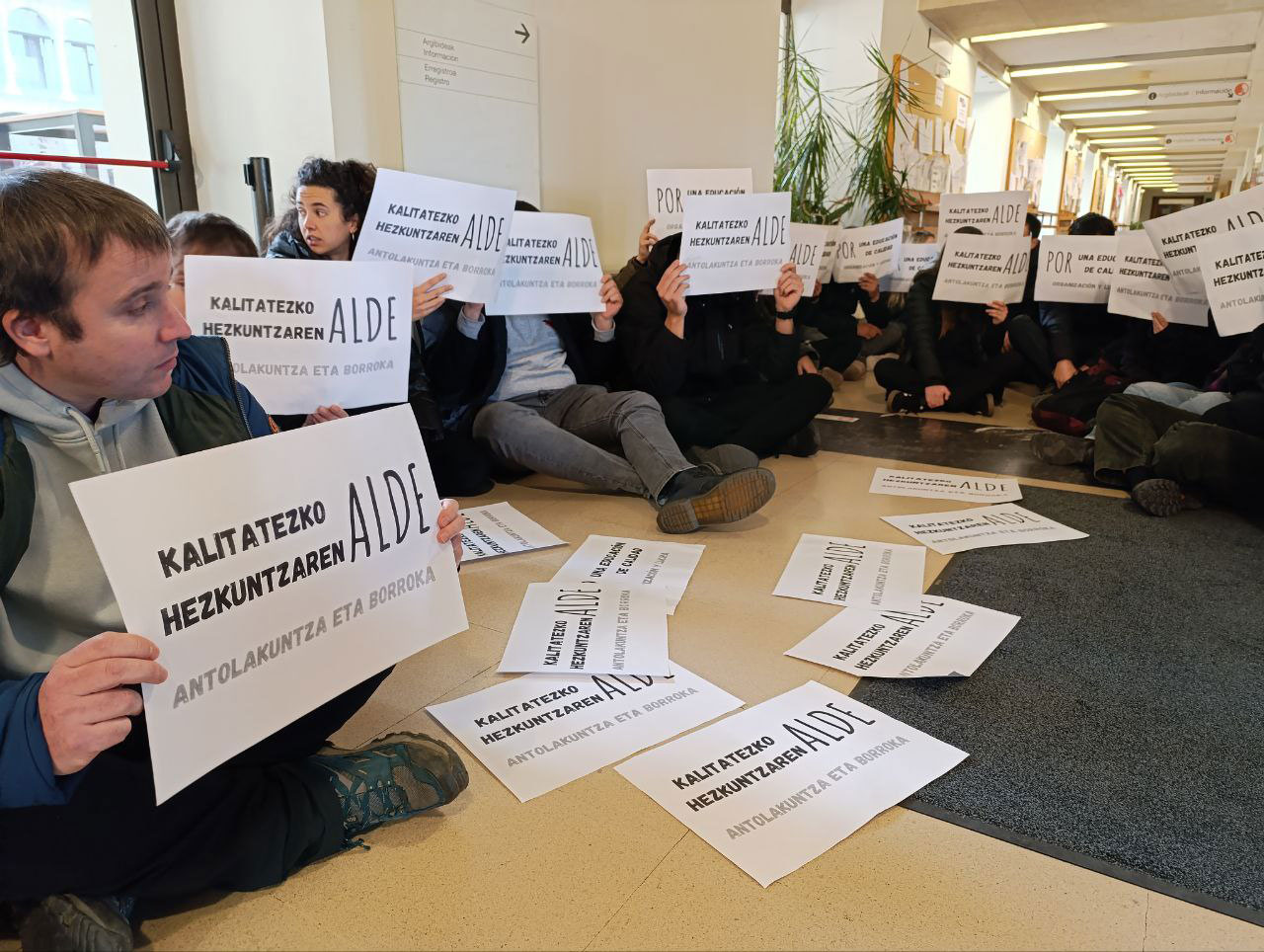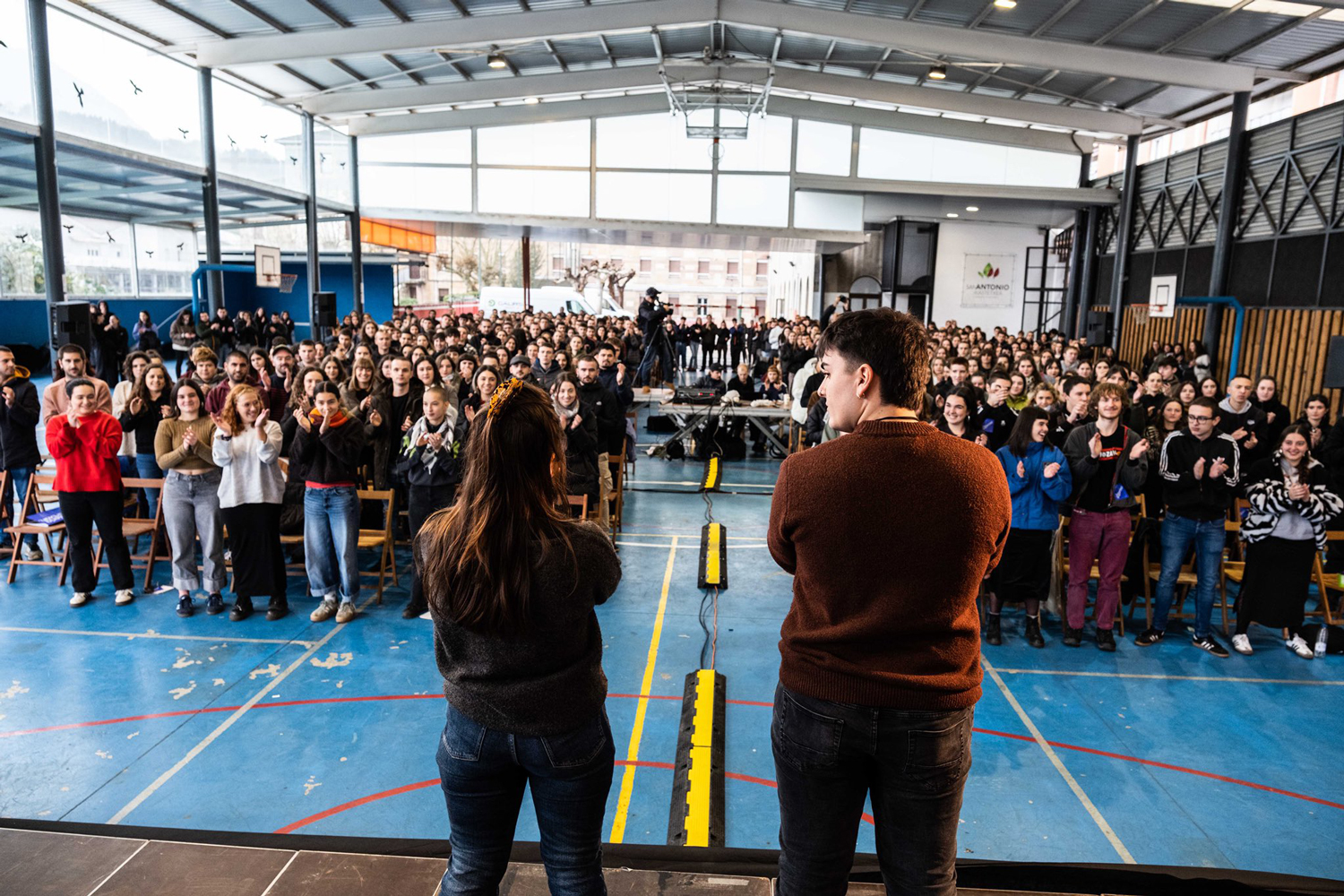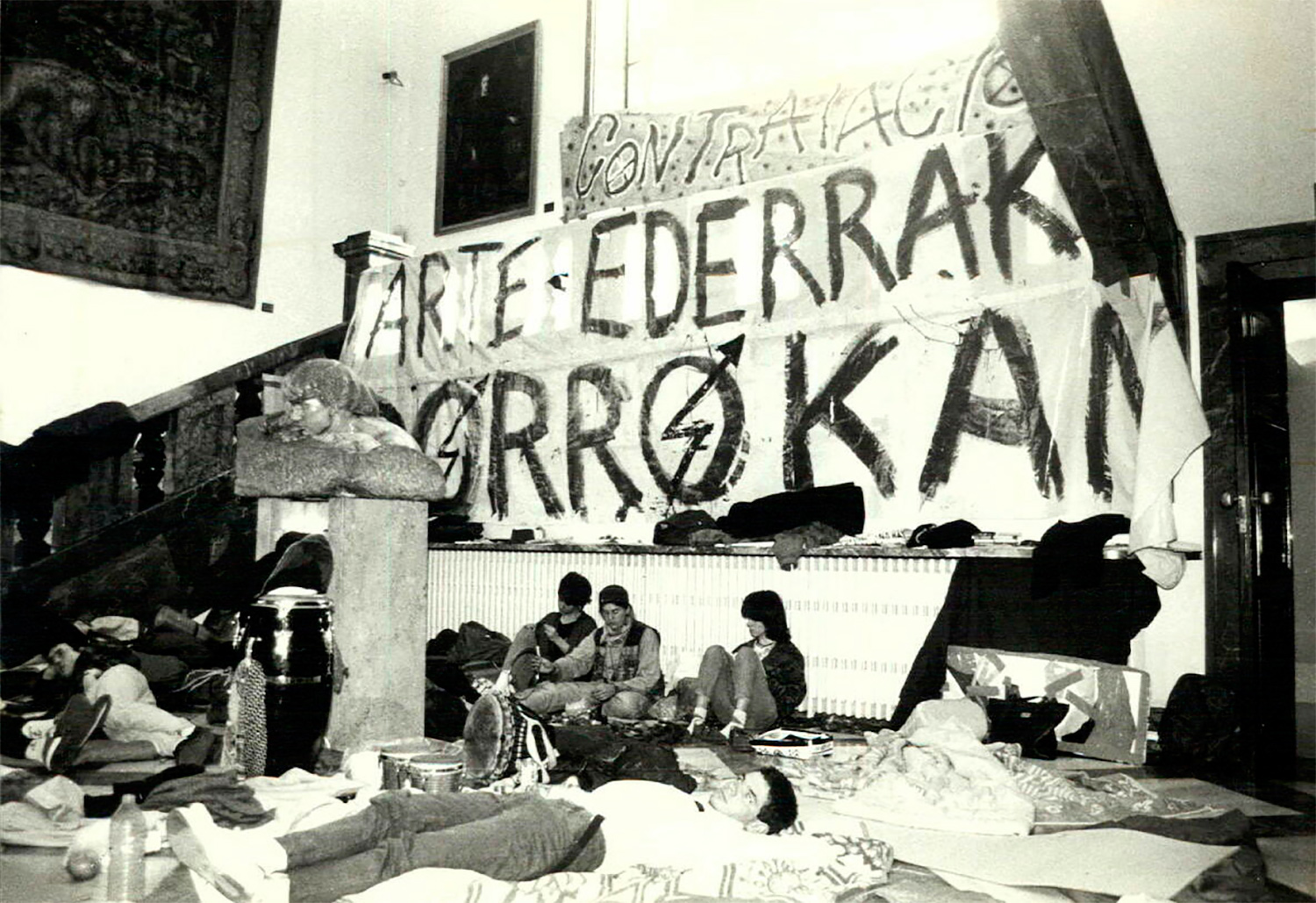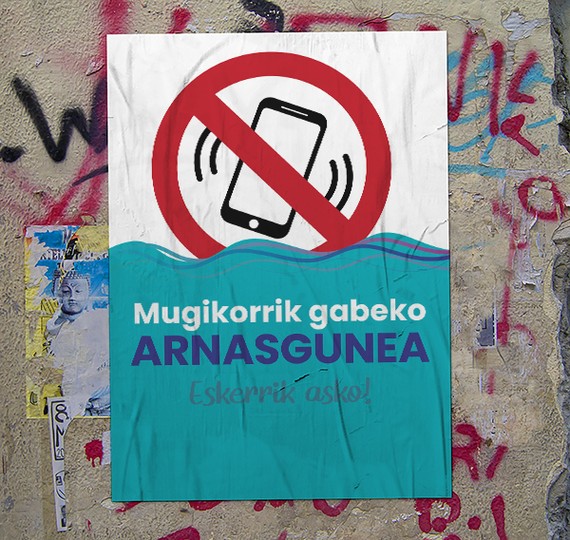"Finns are the developed country because they strengthened the language."
- Why are we afraid of math? Why the psychosis around the PISA external test? Why are Finns better than us at school? The mathematician Aitzol Lasa has compared in his book the educational system of the Basque Country with that of Finland. He says that multilingual Basque education to square the polar circle is key.
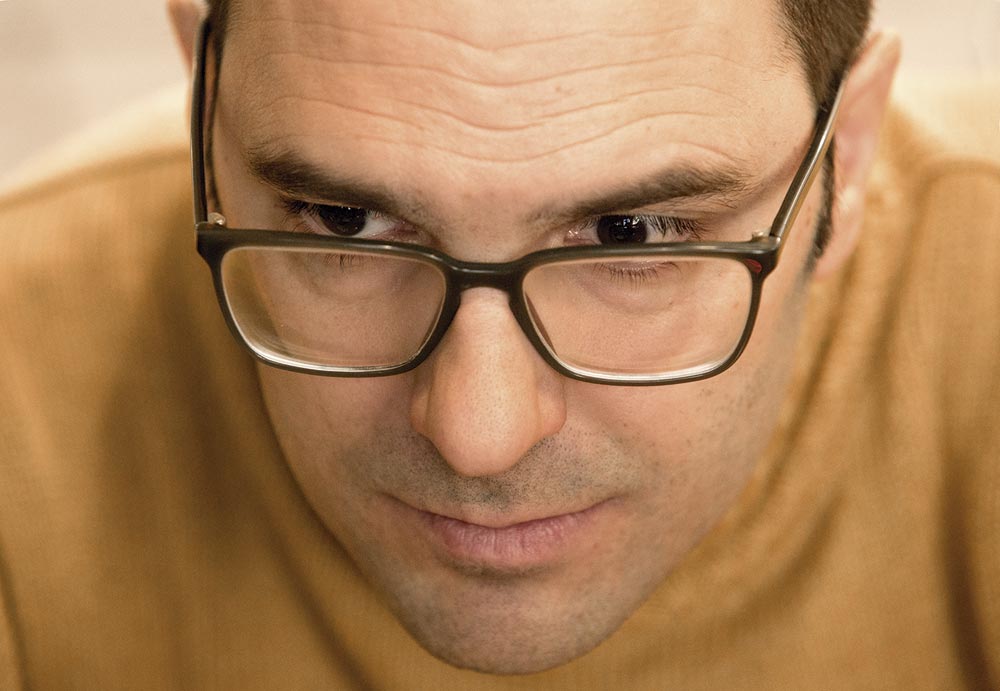
Matematikaria, Matematikaren didaktikan doktorea, NUPeko irakasle eta ikertzailea. Irakasleentzako ikerketa materialen egilea da. Euskal Herriko GeoGebra Institutuaren zuzendaria da. Gazteei zientzia eta matematika hurbiltzeko narrazioak idatzi ditu: Hodeietan (CAF-Elhuyar saria, 2011) eta Usategiaren printzipioa (Nekatoenea saria, 2014). Lehen saiakera argitaratu du: Zirkulu polarraren koadratura. Finlandia-Euskal Herria. Hezkuntza sistemen noosfera eta elkar-neurgarritasuna (Pamiela). Bizikleta zalea, txistularia, gitarra-jotzailea eta abeslaria.
You are a mathematician and researcher. What exactly is your job now?
Lately we are preparing textbooks for the students of the Master's Degree in Secondary Education, in collaboration with professors from other universities, commissioned by the Spanish editorial Synthesis.
In Spain, as usual, education also writes the standard first and then, years later, attempts are made or not to develop the standard. When the Master's Degree in Secondary Education was launched, it was established by decree how the subjects should be, but it was implemented without material. In addition, I teach at the Public University of Navarra to those who pursue the mathematics specialty in the Master's Degree in Secondary Education and to teachers and masters of Primary Education and Early Childhood Education.
Why is math so badly known?
For our way of working from top to bottom. The mathematics curriculum is always implemented centrally. It determines the number of hours and what to work, but then it happens that we don't have teachers. Most graduates who study mathematics are not dedicated to teaching. So who gives the classes? Whoever can. They are normally recycled professors from other scientific and technological studies and do what they can. Despite not being prepared for this, the level of demand with them is very high.
It should be taken into account that students are not accustomed to being evaluated for thinking. Catechisms are taught. You learn from memory, and that's what you evaluate. The students are very fast and they only do what they need to pass. Each discipline has its own methodology and a subject should have its adaptation, but it is not respected.
You have a passion for mathematics, but also for language and literature.
When I went to college, I had two clear choices: Basque philology or mathematics. I chose the second one because it was in Bilbao and I preferred to go there. However, it is nothing strange. In fact, most scientists like literature a lot, and many write very well.
Where does the dichotomy of scientific literature come from?
Because they force you to choose this or another path in the education system, and you don't take other blended pathways into account. One of the features of Finnish education is that they are modules and each student chooses freely what they want to learn and when.
Isn't the system of optional subjects the same here?
Here it is possible to choose theoretically, but due to the organizational needs of the centers, at the end these options are offered in packages, not individually. It seems possible, but these are blocks of subjects. In Finland, with the help of a tutor, pupils have to complete 75 modules. As a result, for example, students of different ages are grouped into the same module. That is the real opportunity.
He has compared the education systems in the Basque Country with those in Finland. Finland is the state and we are not. How has the comparison been made?
There is a comparison between the Finnish immersion model and the Basque immersion model. That is the only comparable thing. The book does not talk much about the administrative organization of the educational system. This cannot be compared here because the CAPV, Navarra and the Basque Commonwealth have particular characteristics, but can be compared with the social model. The beliefs or consensus existing in society can be compared.
This comparison presents the results of the PISA study. Why are they always better than us?
On the PISA test, they are at the top because they have a unique and cohesive educational system. The basis is to give great importance to understanding, and it's, there's no more mystery. Elementary school is called a school of understanding. If we wanted to be like them, we should have a single linguistic, unified and homogeneous model. It is the greatest disaster we have with regard to PISA, which we believe that leaving the choice to families by public consultation and by language model is in the interests of our system, and we are very wrong. All the beliefs of these elections are ideological and lack a pedagogical basis.

Why do you say in your book that in Finland PISA is not an objective, but a resource?
There they do not have the administrative inspection, as we have here. In the 1990s, they had a deep crisis and decided to take it off, in order to save money. Instead, they took the PISA test, created by the Organization for Economic Cooperation and Development (OECD), as a tool for self-evaluation of their work. They extract information from the results of PISA to later develop their improvement plans. Here, however, the only objective is to rise in this classification. Reading plans are a clear example of this. According to PISA, when we say that our students have deficiencies in reading, we are on guard and reading plans are put in place immediately. In most cases, these are overloads for teachers.
And isn't it appropriate?
In this particular case, it is not an isolated plan in the centre, but working with the municipal library to promote reading, for example. Short-term measures are being taken here and they are going nowhere. It happened in 2006. Data from PISA in Navarre were very bad and by 2009 they were "normalized", after the implementation of one of these plans. That, however, has not continued. Nobody remembers that today. We seem to be waiting for the next slap to put a new patch on. I fear that in the course of the reading plan now being implemented in the Basque Autonomous Community the same will not happen.
As for teacher training, what are the main differences?
The profession of professor is of great prestige in Finland, as the studies to be a professor are the hardest of all. After completion of the five-year specific learning process, the heads of the centres directly select the graduates. There are no oppositions. In turn, the Mayor of the City designates the Director of the Center, since the Centers are municipal. The professor is also a researcher. The knowledge of the techniques of research and improvement in pedagogy and didactics means that the teacher does not need a general curriculum of the Ministry. It is one of the things that is not in our hands. If we ever had our system, we should be talking about it from the very beginning.
What can be done in this sociopolitical situation of the Basque Country?
We are entering the field of desires, but a unified and, at the same time, flexible system is needed. This means that we have to structure ourselves in a language of our own, in our case in Basque. Eneko Bidegain proposes in the work Territory and people that there are things that are not in our hands, but others are. There are three administrations in the Basque Country. Education is one of our competences and we can do much more if we work together. We do not have to look at Spain, for example, to change the Basque Law in Navarre and to put an end to zoning. It's our work at home.
From the path proposed by Bidegain, for example, we could complete the cross-border curriculum, a new space that would be shared by our three administrative areas. A new and own curriculum, not a copy of what is given in Spanish.
In educational matters we seem to be waiting for the next slap to put on a new patch.
Are more and more people looking at education as a business?
Yes, it is. If we want to square the circle, we must take into account all the dynamics that positively affect the autonomy of schools, but these dynamics are in contrast to the capitalist markets, that is, those driven by the OECD. On the one hand, it is clear that companies have a clear vocation to intervene in the management of educational institutions and the education system, as they want to condition the contents and competences that the school must develop. Companies see school as a factory that produces their workforce for their future. They suggest that working critical thinking at school is wasting time. On the other hand, it is clear that companies are looking for business in this area: more and more services and franchises are offered in schools. In the past, quality stamps were distributed and programmes are now being sold.
One of them is Kiva, which the Ikastolas Federation has implemented in schools?
Yes. The school is a project against the violence of persecution. It was originally a project to address specific problems of two educational centres in the suburbs of the Finnish city of Turku. Experts from the educational centers and the university started working together. Subsequently, this educational innovation designed in the context of continuous teacher training has become a protocol and has been sold as a product abroad.
How can we cope with this trend?
If we strengthen the horizontal relations of the towns and neighbourhoods, this is one way of holding back the other. One concrete example: here in Navarre, we have a serious problem with teacher training and nobody seems to want to solve it. The Department of Education cannot use the UPNA facilities when organizing the courses. You have to pay it. They are limits. How can you raise pedagogical innovation in these conditions? All public resources of the people should be available to all.

Can the philosophy of small schools be the seed of this new system?
Yes. The school should be a welfare entity that works with local communities and the city council. The use of local products in school kitchens and experiences like this are what we need.
Has anything changed in Navarre with the new government?
The particular situation in Navarre is a clear example of the global situation. There is no consensus on education and it is used to throw stones between sides. In the last four years, despite the difficulties, attempts have been made to break some inertia and the debate has been opened. “Choose what you want and leave me what I want” is the main way to act, but it’s not good. A society that is not cohesive and harmed. At least, the Government’s attempt is fine. That is why we need another legislature to go down this road, but at the moment we do not know what is going to happen in the elections. It's pretty interesting, isn't it?
“Norberaren egoerari buruz diagnostikoa egiteko balio du PISAk, baina ez dago diseinatuta hezkuntza sistemak konparatzeko, herrialde bakoitzaren noosfera desberdina delako. Ikastetxeak elkar-eragina du gizartearekin, eta konexio funtzional horri noosfera esaten zaio”.
“Ezin da finlandiar hezkuntzaren arrakasta ulertu hizkuntzaren biziraupenarekin duen lotura aintzat hartu gabe. Zirkulu polarra koadratzeko, hezkuntza euskaldun eleaniztuna behar dugu”.
“Sortu dugu irudi bat non Europako iparraldeko herriak oso kultu, jakintsu eta aberats diren, baina finlandiarrek pobretzat dute beren burua. Bost milioi eta erdi pertsona besterik ez dira; baliabide natural urriko eremua da eta aspaldidanik Suedia eta Errusiaren menpe bizi izan dira. Hori dela eta, biziraupen kulturalerako estrategiak garatu behar izan dituzte eta hezkuntza sistema horretara bideratu dute ehuneko ehun. Duela mende bat, hemen Unamuno euskararen kontura barrabaskeriak esaten ari zenean, eta oro har euskara gutxiesten zenean, finlandiera ehiztari eta arrantzaleen hizkera literaturagabea izatetik estatu hizkuntza izatera pasa zen. Hori izan zen lehen urratsa”.
“Enpresak eta unibertsitate pribatuetako fundazioak, gure gertukoak ere bai, espezializatzen ari dira diru publikoa jasotzen, ikastetxeetan ustezko hobekuntzak ezartzeko argudioarekin. Gero, ikastetxe erosleek erositako marka saltzen dute beren burua ezaugarritzeko: ‘Gu Montessori gara’ edo ‘gu gara ez dakit zer’. Hori ez doa inora. Enpresak ari dira administrazio publikoen dirua arpilatzen”.
Remember? 90% of Parliament adopted the Education Agreement two centuries ago – forgive me, two years ago. The reaction of the leftist congressmen moved between euphoria and moderate satisfaction. According to the approved document, private institutions would continue to... [+]









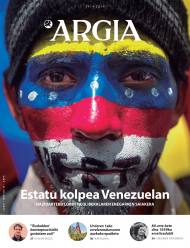

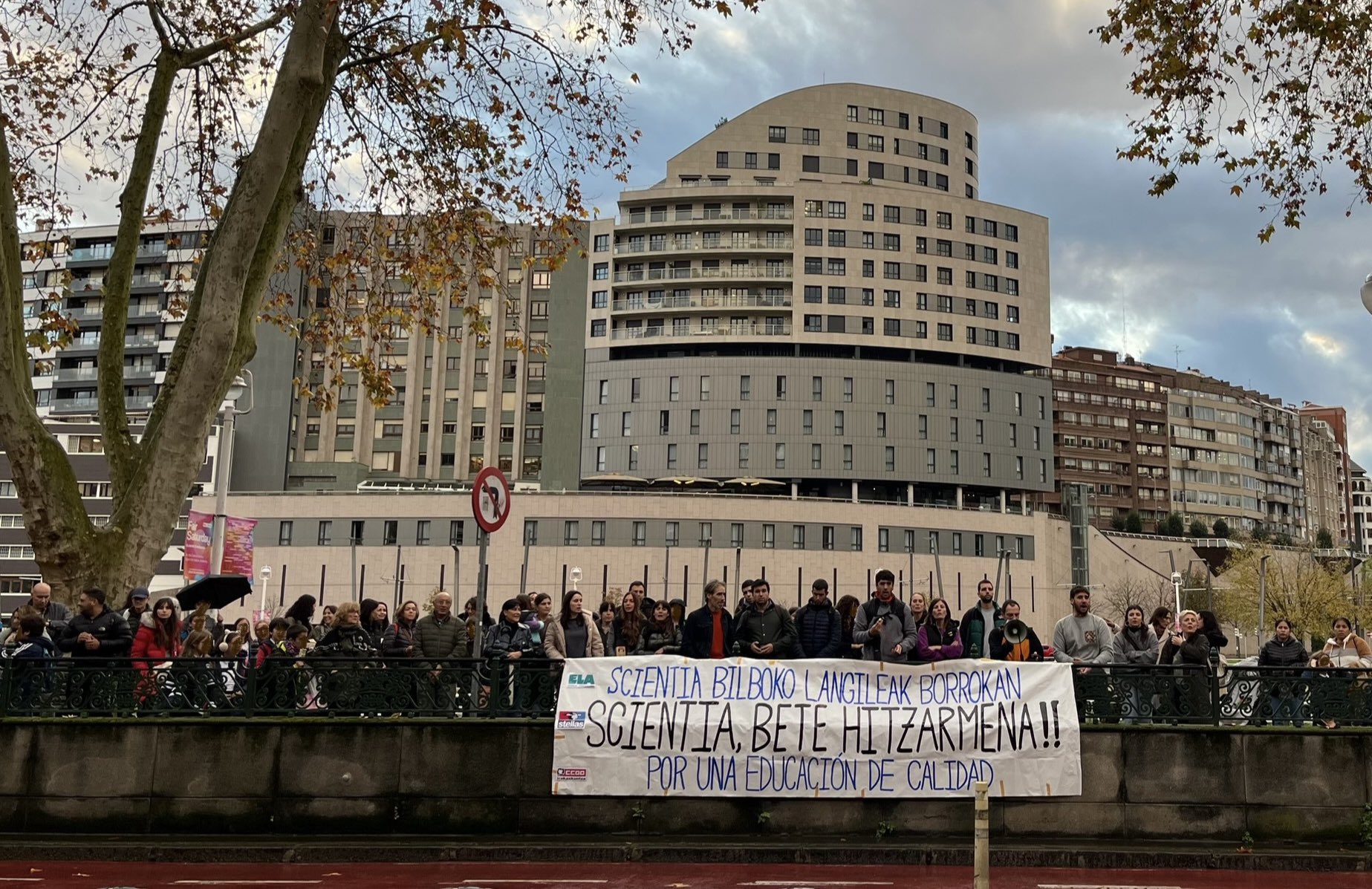

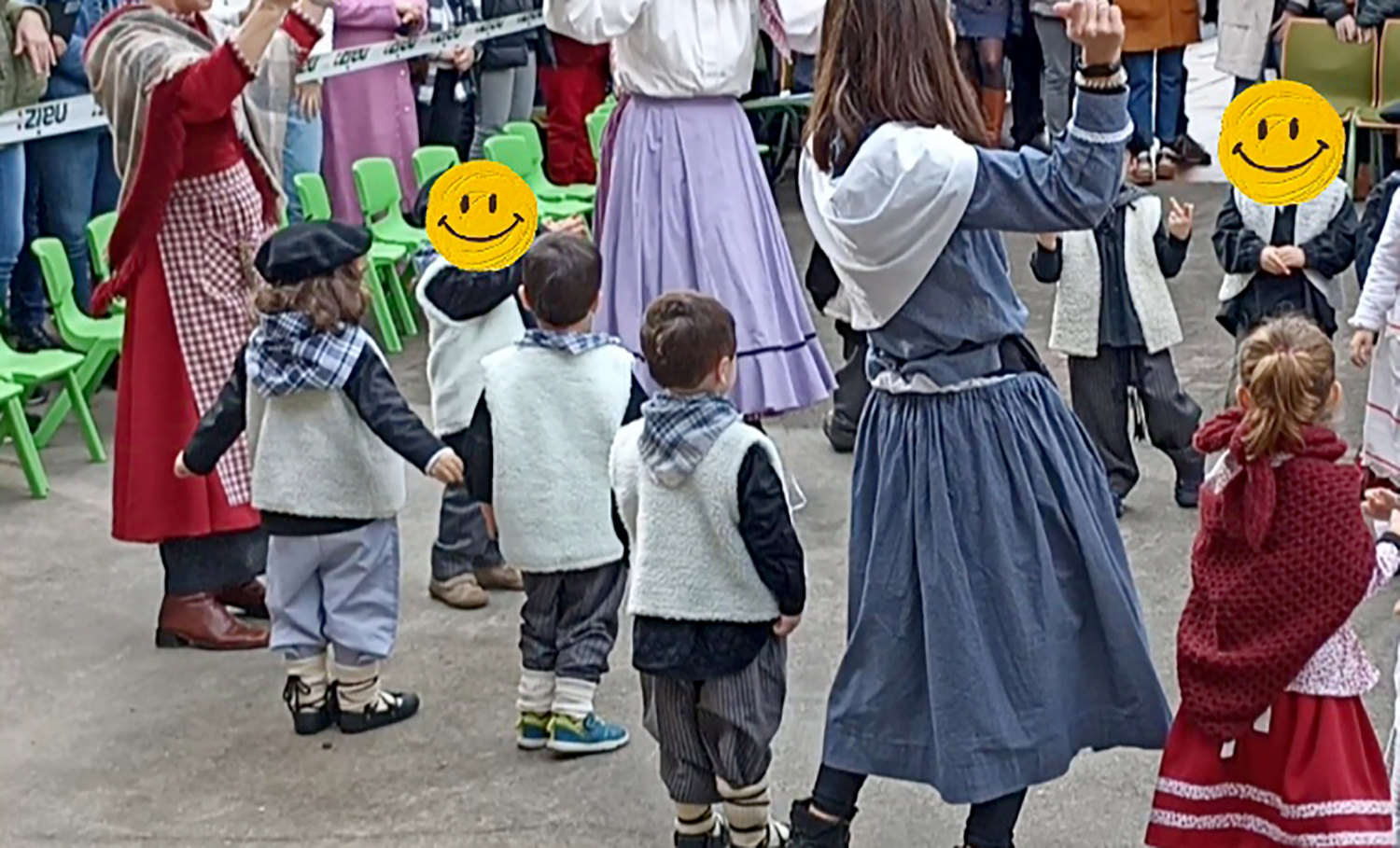
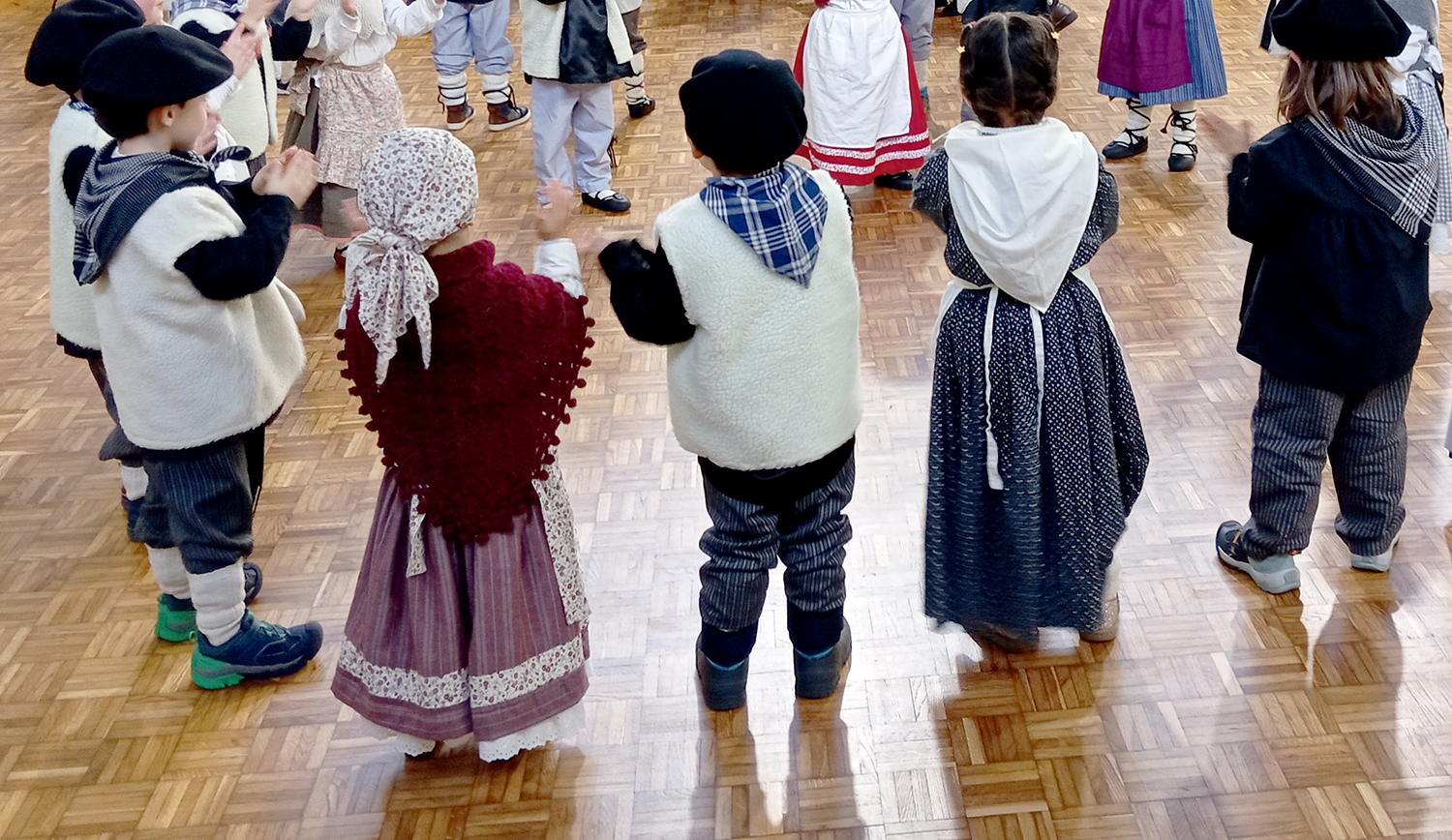
.jpg)
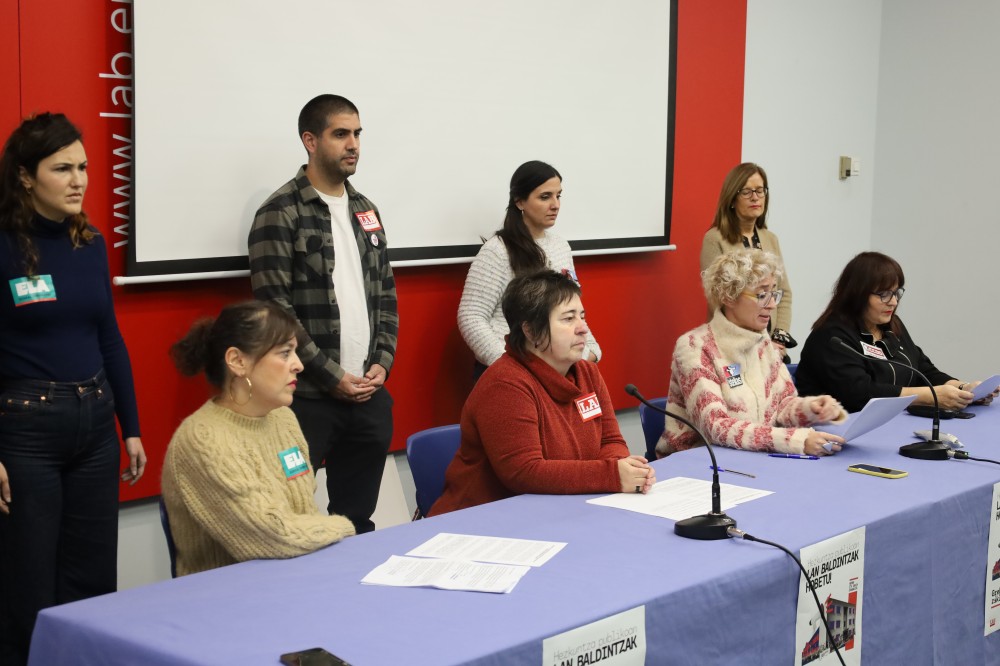
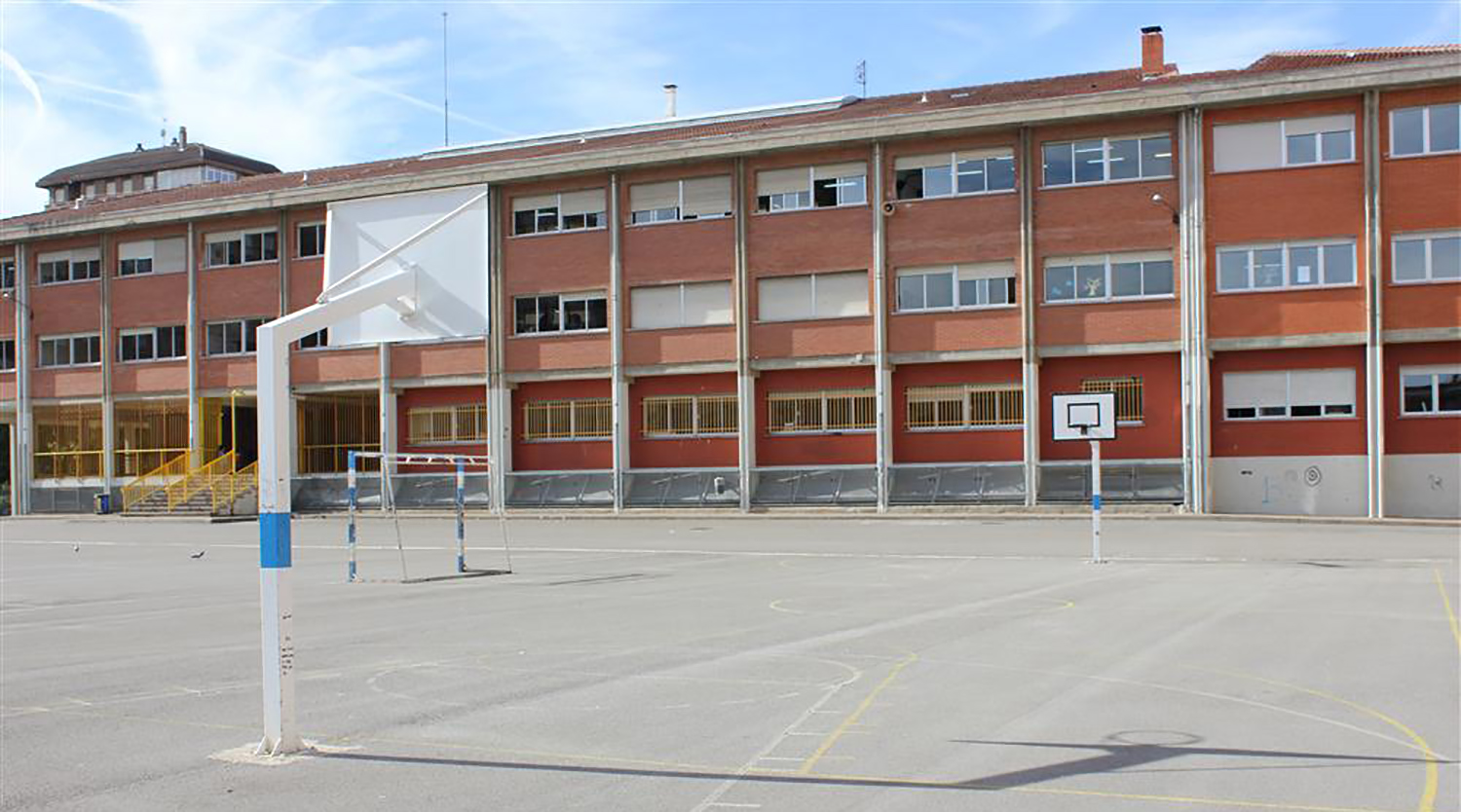
.jpg)
